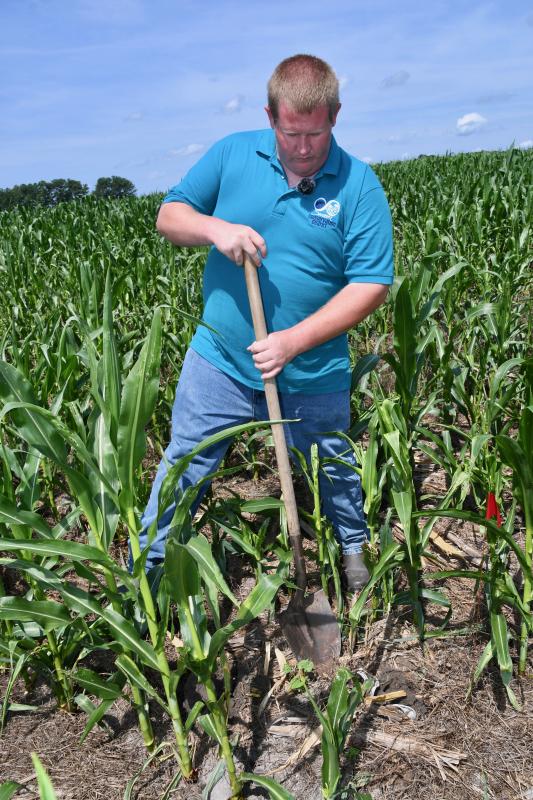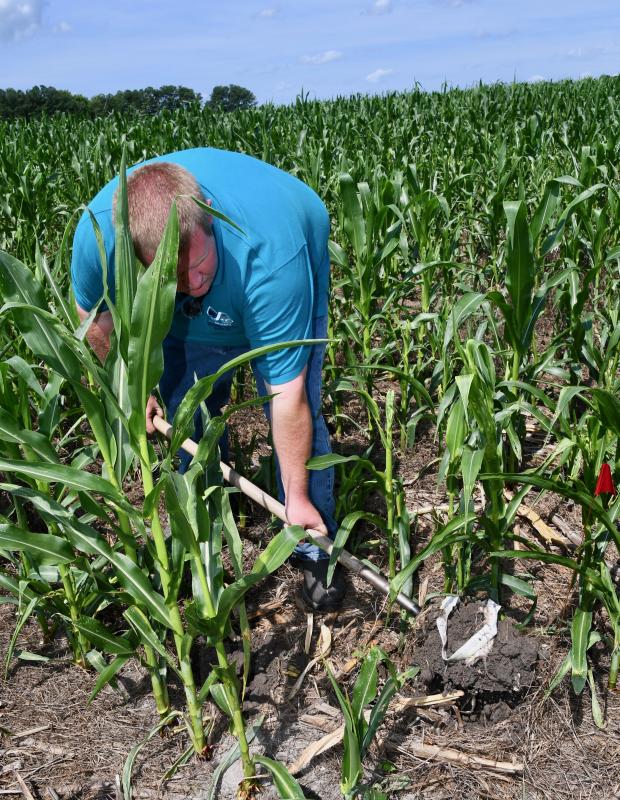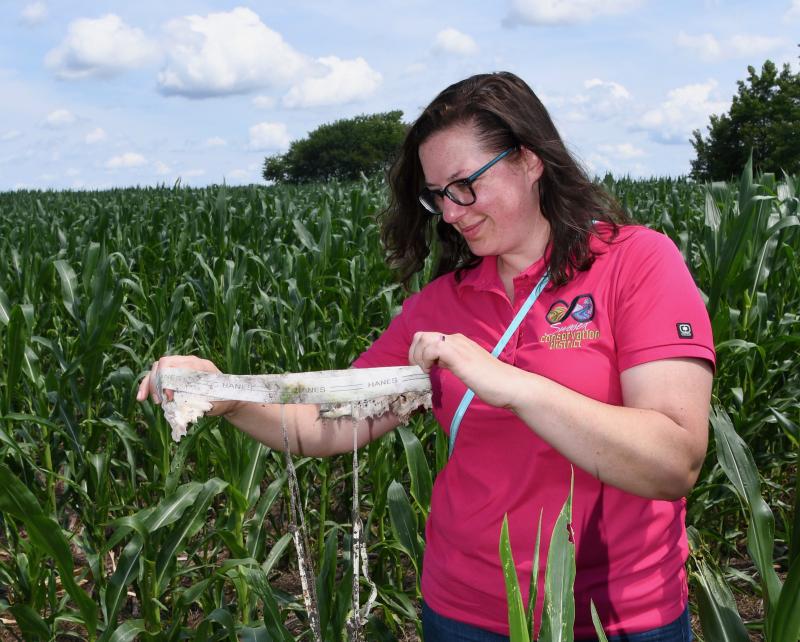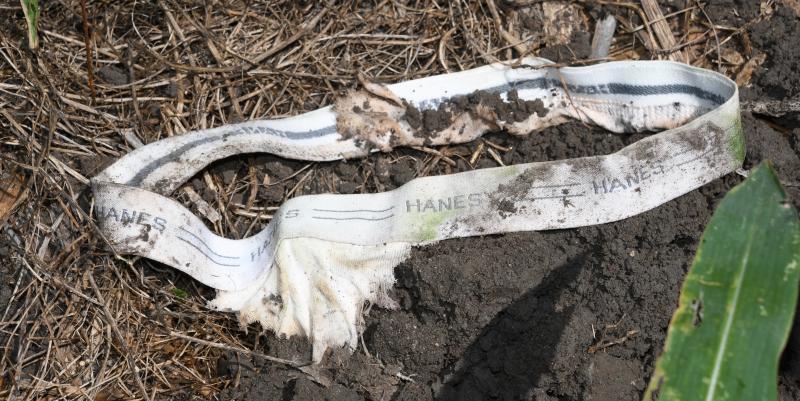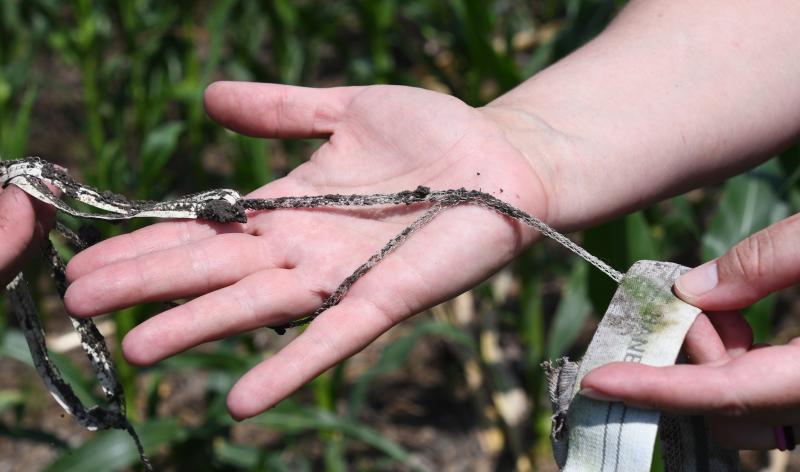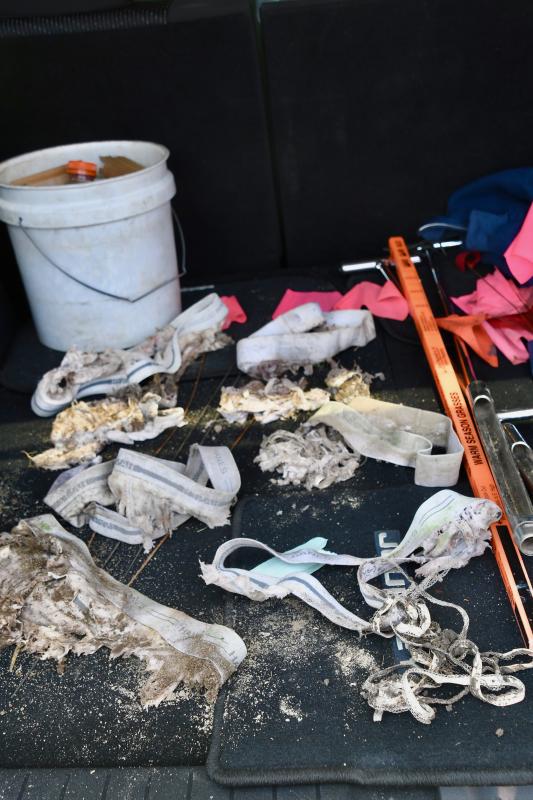With rotten undies comes good soil
The term soiled undies conjures up all kinds of unpleasant images.
But to Sussex Conservation District staff, those soiled undies can signify the health of soil in county farm fields.
While many never give it a second thought, soil health is a cornerstone of economic and environmental sustainability of a farming operation.
During this summer's Undies Challenge, staff spent the morning July 18 digging up cotton underwear they buried in fields throughout the county about two months ago around the time many summer crops were planted.
As it turns out, the more the Hanes briefs decomposed, the better off the soil.
In good soil, microbes are active and eat the cotton underwear. In one of Georgetown-area farmer Jay Baxter's cornfields, the only thing left behind was the band, which is made of elastic and not cotton. In addition, the dig revealed earthworms and clumpy soil – all signs that the soil is at the optimum level to grow corn, said Jonathan Walton, a district conservation planner.
He said soil health doesn't happen overnight. “This field has years of good management with no-till farming and cover crops,” Walton said.
In fact, Baxter is one of six Soil Health Champions in Delaware, which are all Sussex County farmers.
“He is very particular about what he's after, and he tends to think outside the box,” Walton added.
Last fall, Baxter planted a cover crop called hairy vetch, which is a thick vine-like flowering plant. Walton said when the vetch dies off, it releases nitrogen into the soil, which in turn cuts back on the amount of fertilizer needed on the field and cuts down the farmer's costs. As it rots, it becomes a microbe-rich mulch as well.
Siobahn Kelley, the SCD’s communications and outreach specialist, said Sussex farmers champion good conservation practices to limit runoff from fields and help to improve water quality. “The goal is to hold everything on the farm,” she said.
By the end of the morning, the staff had a collection of underwear in varying degrees of composition. Walton said some farm fields, particularly sandy fields, present challenges to farmers. “When the microbes are not as active, there is room for improvement,” he said. “We offer ways to help farmers improve their operation.”
Gone are the days farmers would harvest a crop and let a field lay fallow until the next season. Walton said it's important to keep roots in the ground every day of the year, even over the winter. That's where cover crops come in to play.
Among the many programs offered by Sussex Conservation District is technical and financial assistance to county farmers. The district provides cost-sharing funding up to $75,000 for cover crops and other best-management practices. Staff also offer help in conservation planning. Cover crops are proven to be one of the easiest and most effective conservation practices in the county, according to district staff.
Kelly said the Undies Challenge is a fun way to demonstrate the microbial activity within soil, raise awareness of soil health practices such as cover crops and no-till, and highlight the efforts of farmers across Delaware.
Soil health is a major focus of the district. According to its website, “Soil health is the continued capacity of soil to function as a vital living ecosystem that sustains plants, animals and humans. Good soil health is a cornerstone of economic and environmental sustainability of a farming operation.”
In 2014, the district spearheaded an effort to create the Delaware Soil Health Partnership, which provides workshops and field days throughout the year to help farmers develop farm-specific strategies to improve soil health.
For more information, go to sussexconservation.org.
